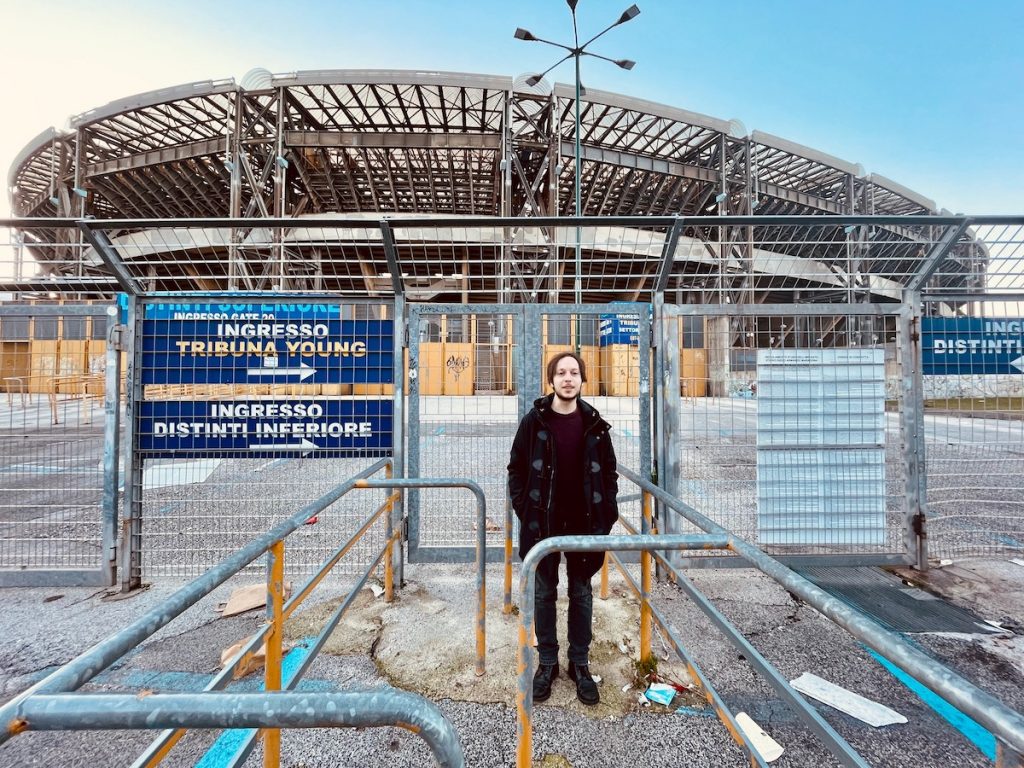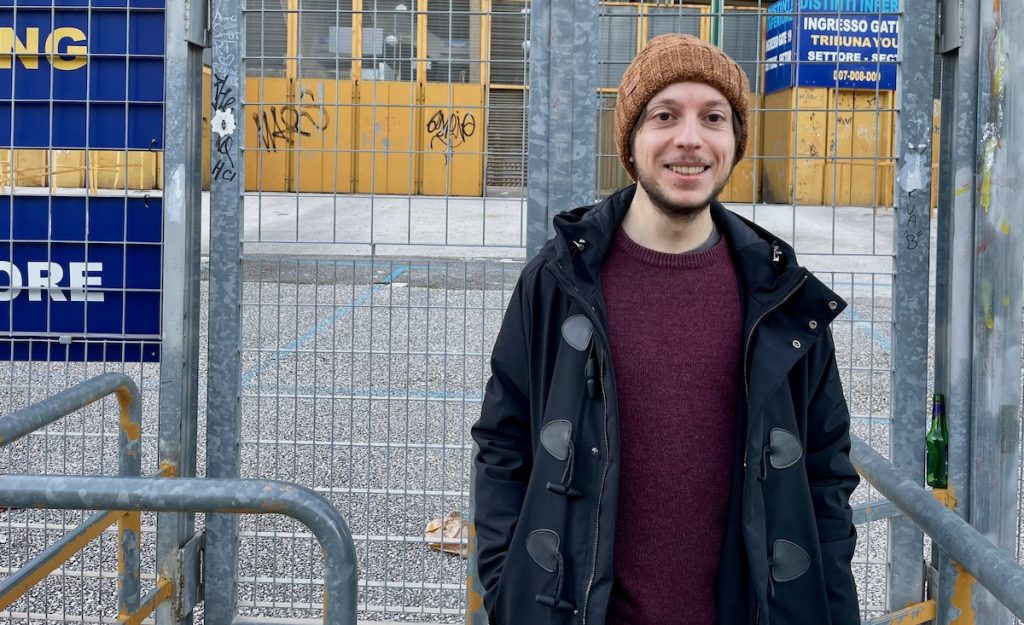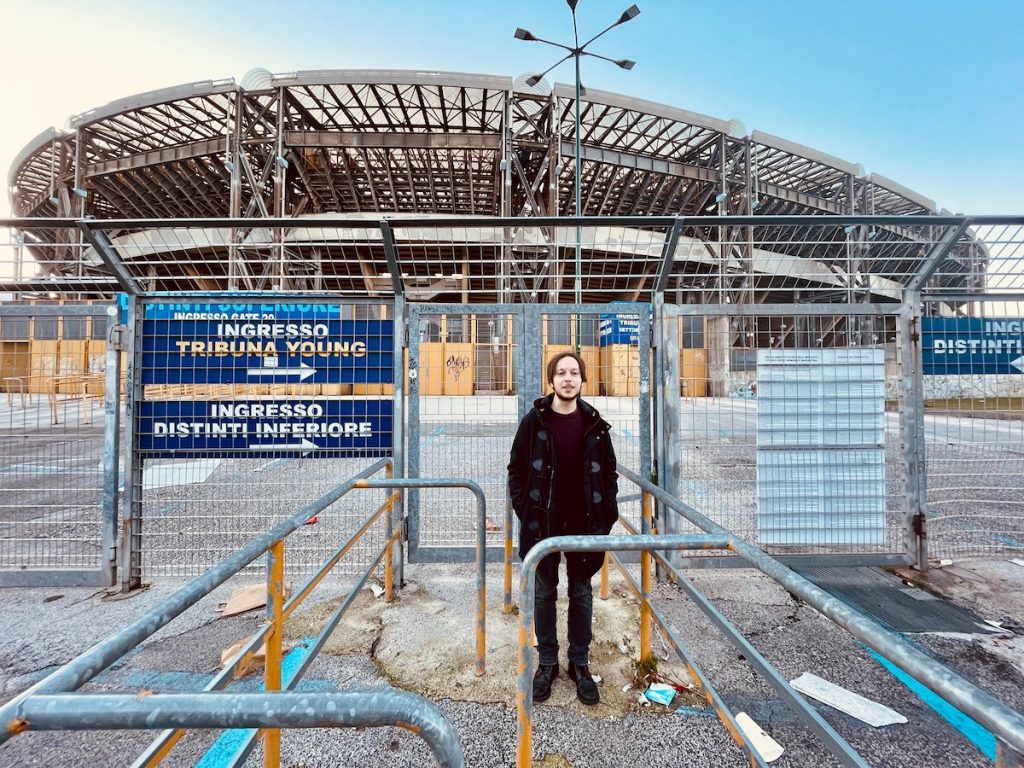Your life in a few lines until now – exactly from where it starts
I enrolled in Japanese and English literature studies, I studied drawing, I enjoyed playing noise music, I briefly dwelled in Japan, I started working as a translator either of boring stuff from English and for Japanese anime, then I moved to converge all my experience into a publishing project, naming it Pidgin Edizioni.
Pidgin and Naples: it doesn’t seem there is a relation out there…even if Naples is the city from where all starts: tell us more
Maybe it’s me looking for symbolism everywhere, but I guess Naples embodies all Pidgin Edizioni crucial characters: multiculturalism, street life, the belly rollercoasters either for the overwhelming beauty and for the violence, the surreal and the grotesque in its syncretism, the sense of distress for being acknowledged that, at any moment, the ground under your feet can explode. I don’t see it is forced to say that the sensations I look for in books to publish are in some ways the same my city conveys. I feel anyway very attached to Naples.
Pidgin sees you engaged on all fronts: choosing novels, drawing or selecting the cover illustration (which is equally crucial to you as the novel itself), until the adaptation and the translation that are the other half of the sky, if we consider you are publishing foreign narrative around 99%.
Which is your favourite role?
How you organize your work-flow that I imagine endless? How do you recharge the literary reservoir of your inspirations?
For sure I prefer translation among the bunch of duties I have. But I have to admit that I also love the phase of designing the book because is such a different task and, so, it offers me a nice variation: it is more schematic and, in a certain sense, more automatic. Wherever the translation is a continuous, tortuous, endless labyrinth that constantly draws your 100% of attention.
I confirm that my work days are endless. I am forced to case them in a system of notes, memos and rationalization because I fill them with novels translation, external paid jobs of translations, social medias management, Slengo Dictionary moderation, illustrations and, to end, reading. It’s harder to recharge my literary reservoir but reading (Italian or foreigner) published works which I find stimulating for their innovation is reinvigorating me.
I only add that since this year our ratio among Italian and foreigner published narrative will be 50%-50%.a
Will you go also to translate Italian narrative in English?
Not me directly but I hope that some interests from foreign publishers will be arising around Pidgin Italian books. I’m certain that sooner or later we will reach this milestone.
Which will be the next book Pidging is publishing and how did you choose it?
It will be the translation of Chelsea Hodson’s “Tonight I’m Someone Else”, a collection of personal essays with which the author is able to touch in a poetic way universal chords on themes like identity, being subjected to control.
The choice derives from two reasons: since a while with writer Sara Verdecchia we started working on this non-fiction genre (in Italian we called it ‘saggi lirici’ or ‘saggi narrativi’) to publish first works on our online literary magazine SPLIT and then also in a dedicated collection. This work in particular is either a marvelous kind of this genre and very in line with our general tone; the second reason is that Chelsea, Sara and me are all linked to a common friend, the US publisher Giancarlo DiTrapano (Tyrant Books, DiTrapano Books) that in the last days was dwelling in Naples. He left us on March 2021, so publishing in Italy this book also he warmly suggested me, is a good way to commemorate him.
Millenials readers and their relation with social media: can you tell this to us according to your personal experience?
Social medias allow small publishers to gain access to a visibility in other way forbidden given that the space on conventional medias is very tiny and heavily controlled by huge publishers. I am not a very avid social media user but also in my small activity I got the luck to create on different platforms a small circle of passioned readers (especially Millennials and Gen Z) who are the main backers of Pidgin Edizioni.
Many of the writers you publish don’t love to reveal biographical treats, starting from their birth date. They are all invariably very young. We talked about this a bunch of months ago at your booth in one of the first book fairs happening to open after the second lockdown. All these authors, by the way, are mainly selected starting from their biography and their momentum
The selection does not start from the biographic side: the life of writers is so hugely present in what they write that is inevitable that at the very end I – bearing in mind a certain type of very actual, street-level literature – select works by authors of my generations.
You as a reader: places, situations, preferred moments of the day or of the night
When it is not too hot or not too chilling: on a sun deck chair on the balcony with the sun; when it is too hot or too chilling: at nights in my living room on the sofa.
A book and a song that in this precise moment you would bring with you even if they will be the only item with you
A book: Dazai Osamu’s ‘Ningen shikkaku’ (No Longer Human)
A song: Karate’s ‘New Martini’.
Where do you see yourself in ten years and what did you learn from life so far?
It’s a very obvious reply but life taught me that in ten years everything can change and that it will change. Recalling my past, I think that I’ve never been able to guess what I could become ten years after, even roughly. Maybe in ten years from now I will be a Noble Prize for physics or, most likely, I will be homeless.



